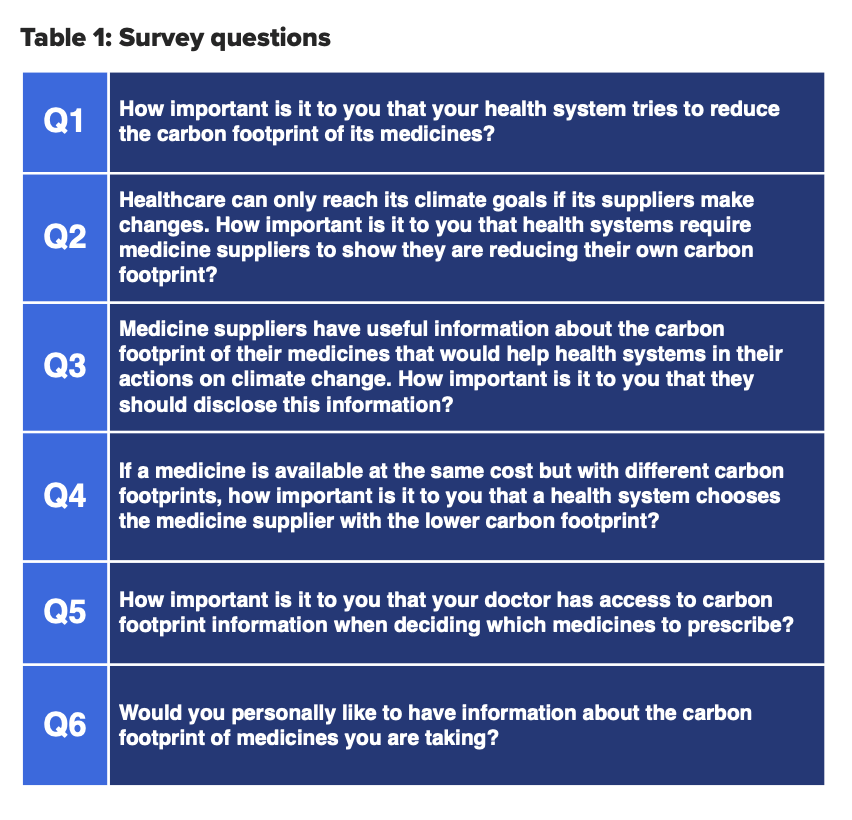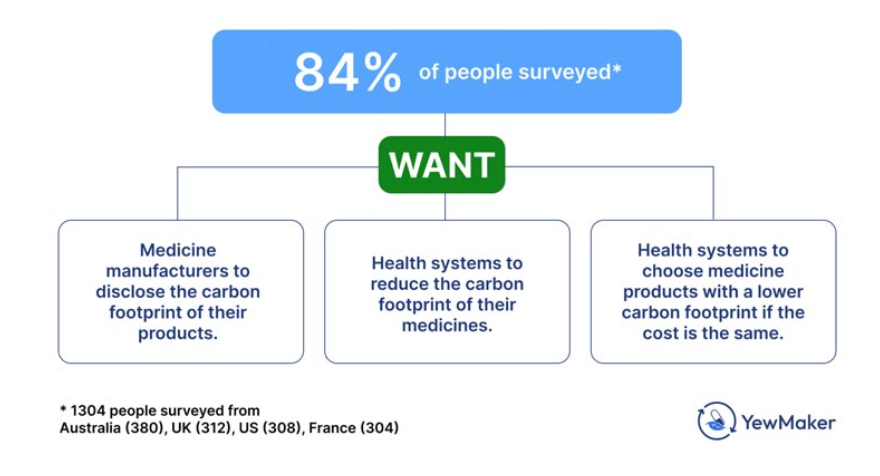Dr Nazneen Rahman, Founder and CEO of YewMaker and Sustainable Medicines Partnership (SMP) Director, shares insights from a patient survey on reducing the carbon footprint of medicines
The NHS has set an ambitious target to achieve net-zero carbon emissions by 2045, and more than 60 healthcare systems worldwide have similarly committed to reducing their carbon footprint.
Given the profound impact of the climate crisis on health and well- being, it’s no surprise that the healthcare sector is taking its environmental responsibilities seriously. However, the task is far from simple. Amid rising backlogs, increasing costs, and many varied pressures, it is essential to carefully consider the potential consequences of embracing this extra obligation.
To do this, we need to understand the choices and trade-offs. We need to search for solutions that can address emissions and alleviate other pressures. We need to ensure prioritising environmental issues doesn’t inadvertently create or exacerbate other problems.
And, importantly, we must understand the concerns and expectations of the population. How do people want healthcare to navigate this new responsibility?
Pharmaceutical emissions: A critical concern
Reducing carbon emissions related to medicines must be prioritised in healthcare Net Zero strategies, because pharmaceuticals account for a large proportion of emissions: 25% in the NHS.
For a few medicines, such as anaesthetics and inhalers, there has been success in measuring, stratifying, designing, and implementing carbon reduction strategies. Most notably, in 2024, the NHS has committed to phase out the use of Desflurane, an anaesthetic gas with a global warming potential 2,500 times greater than carbon dioxide. However, these instances remain exceptions, primarily because so little information about medicine-related emissions is available.

Public sentiment on medicine carbon footprints
To gauge public sentiment on this topic, YewMaker conducted an online survey using the SmartSurvey platform. We received responses from 1304 individuals from four countries, the UK (312 participants), U.S. (308), Australia (380), and France (304). Any individual over 18 years of age who had been prescribed at least one medicine in the last two years was eligible to participate. We asked them the questions in Table 1.

People care about healthcare emissions
There was remarkable consistency across the four nations, particularly in relation to how they wanted health systems and medicine manufacturers to act. 84% of people surveyed believed it was important for their health system to try to reduce the footprint of medicines and to choose medicine suppliers with a lower carbon footprint if the costs were the same.
There was similar, overwhelming support for requiring medicine manufacturers and suppliers to show they are acting on their own carbon footprint, and to disclose information on the carbon footprint of their products. A smaller, but still sizable percentage (73%) felt it was important for doctors to have access to carbon footprint information when deciding which medicines to prescribe.
Personal preferences vary
People had more diverse opinions when asked if they personally wanted information about the carbon footprint of the medicines they were taking. 52% said they did want the information, but 13% said they did not want it. 27% didn’t mind, and the remainder didn’t know. We are further exploring these findings through one-on-one interviews to delve deeper into the reasons behind people’s choices. However, this first survey shows further research is necessary before making carbon footprint information on medicines widely accessible.
MCF Classifier: Medicine Carbon Footprints at Scale
At YewMaker, we have been developing MCF Classifier, a suite of data-driven solutions that provide standardised, user-friendly medicine carbon footprints. The substantial contribution of pharmaceutical emissions to the overall healthcare carbon footprint, combined with the lack of accessible data, has driven interest and support for our efforts.
It’s encouraging to see that our commitment resonates with the views of patients and the public, who overwhelmingly support the health sector’s commitment to reducing the carbon footprint of medicines.
Data-driven solutions to drive change
Within MCF Classifier, we’ve harnessed data science and green chemistry prediction metrics to calculate the carbon emissions per dose for over 2,000 medicines.
We’ve consolidated the data into four emission categories – MCF Ratings – to facilitate comparisons and benchmarking. Our vision is to make the ratings readily accessible through the MCF Formulary, a searchable, user-friendly web application slated for launch in early 2024.
At YewMaker, we are using MCF Classifier outputs to identify priority areas for carbon reduction strategies, with a specific focus on Triple-C wins: interventions that are clinically effective, cost-effective, and carbon-effective. We hope the availability of the MCF Formulary will stimulate broader awareness, research, and innovations to measure and mitigate the carbon emissions associated with medicines.
This mission, and the mission of Net Zero healthcare, is not just a responsibility, it’s a shared commitment. It’s what healthcare owes to society, and it’s what the public rightly expects from healthcare.

This work is licensed under Creative Commons Attribution-NonCommercial-NoDerivatives 4.0 International.











